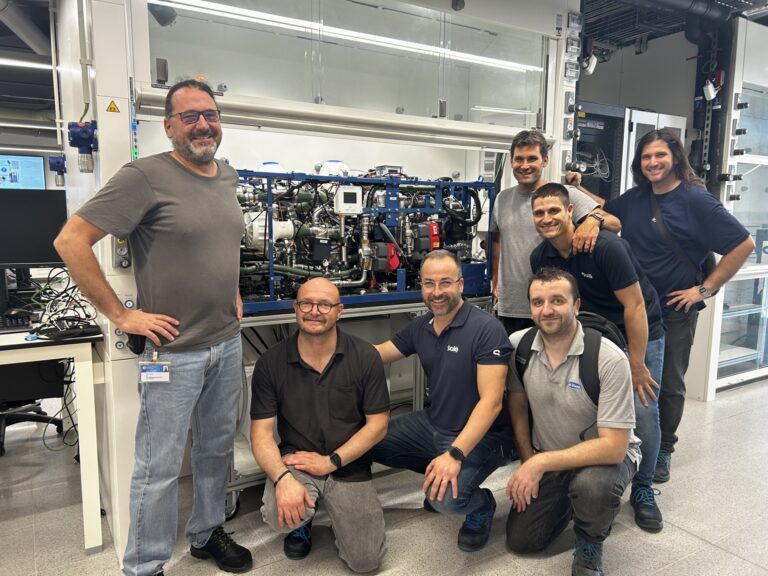Solé Advance has announced the development of a proton exchange membrane (PEM) hydrogen fuel cell for integration into marine electric/hybrid propulsion solutions and onboard power generation.
The announcement follows progress the Barcelona-based marine engine manufacturer has made on HVO compatibility and new efficiency focused ranges. It forms part of the company’s R&D program, with applications in other industrial uses beyond marine also being considered.
The program is being developed at Solé with technical collaboration from Applus+ Idiada and the H2Lab at the Universitat Politècnica de Catalunya – BarcelonaTech (UPC).
The fuel-cell stack is supplied by EKPO, freeing Solé and its collaborators to focus on the design of the balance of plant (BOP) – thermal and air management, humidification and purging, power supply, instrumentation and protections – as well as on marine integration (control, cooling, safety and durability in saline environments).
The work has culminated in the assembly of a first integrated prototype, already validated at UPC’s laboratory during its initial test campaign. The project has a target output of 76kW for the PME fuel cell.
One key advantage of the prototype is its compactness, which is said to ease installation in the confined spaces typical of engine rooms without compromising service access.
Marieli Solé, CEO of Solé Advance, said, “This program is a natural step in our evolution toward next-generation onboard power systems and technological transition: integrating a 76kW hydrogen fuel cell with safety, efficiency and maintenance criteria tailored to real operation on board, in both leisure and workboats.”
Víctor Miravet, director of engineering and manufacturing at Solé, added, “Initial tests at UPC’s laboratory have been encouraging. Our next step is to transfer those results to real operating conditions on a vessel, ensuring optimal cooling, consolidating a robust energy solution within an interconnected onboard energy ecosystem, developing control strategies for the most efficient power management possible, and paying special attention to corrosion resistance.”
In related news, Rolls-Royce successfully tests first pure methanol marine engine



